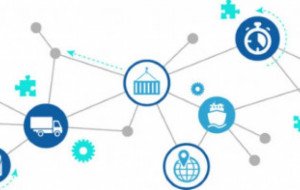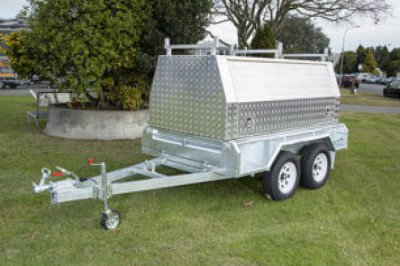
views
Top 10 Skills You Need to Become a Successful Chartered Accountant!!
Being a Chartered Accountant might give you the chance to work in finance and study fundamental financial concepts. Chartered Accountants always have core competencies that enable them to organise and analyse financial data as well as use the necessary tools and software. Knowing these skills can help you prepare more effectively for your professional path and make sure you are qualified before submitting an application for the position of Chartered Accountant. In this blog we’ll look at 10 essential skills that will help you to become the best Chartered Accountant.
The following 10 fundamental Chartered Accountant abilities can help you to be successful in an accounting career:
1. Strong mathematical abilities:
Chartered accountants should have high mathematical abilities because they work with numbers. The ability to apply sophisticated mathematical concepts to real-world situations is known as numeracy. CA Entrance Exam books can help to practise more new questions that will help you to expand your knowledge. To track and manage an organisation's finances, accountants may employ sophisticated algebra, formulae, and other technologies. Accountants use mathematics to calculate earnings, expenses, disparities between sets of numbers. If you are opting to become a CA then it’s obvious to have mathematical skills. These skills are typically developed through practice and team-building activities
2. Excellent Communication Skills:
As an accountant, you most likely operate as an independent contractor or as a member of a team, both of which necessitate regular interactions with other people. You can share your thoughts and expectations more effectively and understand others' expectations better if you have strong communication skills. Strong communication skills can include communication with others either verbally or in written form. Basic respect for others and their beliefs, as well as empathy or compassion to help in understanding others, are further aspects of good communication skills. These abilities are often developed by Accountants through training and cooperative activities.
3. Strong Software Expertise:
Due to its lower cost and smaller footprint, computer software is used by many firms to keep track of their financial information. Spreadsheet software, bookkeeping software, communication software, and computer operating systems are just a few examples of the types of software that accountants frequently utilise in the course of their work. Strong software expertise and familiarity with common applications are required for this. Softwares are used by accountants to keep tabs on the financial health of the business, file reports or draught documents for clients, generate bills for their services, and keep track of their workload. Software skills are often acquired via training and education and improved through practise by accountants.
4. Outstanding Organisational Abilities:
Accountants handle vast amounts of data, for which they should have excellent organisational abilities. To succeed in the field, one must be able to manage their workspace, time, and resources effectively. An organised accountant can deliver more accurate data and gain their clients' trust. The ability to arrange financial data into a legible manner, such as balance sheet, is another aspect of organisation abilities. Accountants frequently organise and translate complex information to generate internal documents for company executives to evaluate. The organisational abilities that accountants develop during training can be improved after they begin working in the industry.
5. General Business Acumen:
Accountants typically possess general business acumen. This is the ability to understand basic business operations and how the business uses its financial resources. This skill set can help accountants better understand why certain expenses are on the company's balance sheet and to provide general financial insight for company executives. Business acumen can also include an understanding of the company's internal structures, supply chain, availability of resources and the products or services the company provides. This familiarity can help accountants build trust with their employers. Most accountants learn their business acumen skills during training or education.
6. Excellent Analytical And Problem-Solving Abilities:
Due to their work with vast, complicated data sets, accountants must have excellent analytical and problem-solving abilities in order to find errors, increase the accuracy of their reports, and propose original solutions to everyday problems. Accountants analyse the company's financial reports with management to see if there are any errors or other issues. They can also be used to find more severe problems, like fraud. For business executives, an accountant could offer insightful advice on how to lower the company's basic costs and boost profit margins. Although most Chartered Accountants acquire these abilities through training, some may be naturally good at problem-solving.
7. Excellent Honesty and Ethics:
Integrity and honesty are frequently essential qualifications for the position of an accountant because they handle sensitive financial information. Because companies place a great deal of trust in their accountants, it is essential to be able to keep business information confidential and refrain from using it to your advantage. Gaining the trust of your employer via consistent performance and honesty can help you advance professionally, receive a higher income, and boost your self-confidence. Chartered Accountants frequently bring innate honesty and integrity to the job, which they may improve once they have understand its specifics.
8. A Strong Sense of Independence:
Accountants may operate as independent contractors or for an employer. Strong self-determination and confidence are often necessary for either type of job arrangement in order to promote growth and professional development. Accountants who possess self-determination are more able to inspire themselves, exercise self-control, and seize opportunities as they present themselves. Strongly self-motivated accountants, for instance, might pursue a career as Chartered Accountants with major multinational organisations.
9. Sufficient Teamwork Abilities:
Large companies or financial firms may employ Chartered Accountants as part of an accounting team, and for that they should have strong collaborative abilities. Increasing professional networks, building enduring relationships, and developing professional abilities can all be accomplished by working as a team. The ability to operate as a team can also help in teamwork, which may be required to address particular or challenging workplace issues. Teamwork abilities involve the capacity to work with people, take criticism, and contribute to a group, just as interpersonal skills are important. Through collaborative initiatives, they can gain these abilities.
10. Legal Knowledge:
Chartered Accountants are well-versed in tax laws and other issues pertaining to handling a company's finances. To gain excellent legal knowledge they must study well during their training and exam time and for this they can take the help of CA Intermediate books. These skills help them in ensuring that their clients follow the law, potentially preventing fees or litigation due to non-compliance. Legal expertise might involve being familiar with legal procedures and regulations, being able to prepare and file legal documentation, testifying as an expert witness in court proceedings, and advising business executives on compliance issues. During their study, Chartered Accountants often acquire legal knowledge.
Conclusion: To become a Chartered Accountant is one of the best career options in today’s era. I’m sure that after reading this blog you must have understood that only bookish knowledge is not required to become a successful Chartered Accountant but it needs much more. The top 10 skills about which we had talked about in our blog will help you. Thanks for reading our blogs. Please give your suggestions, they motivate us to write more good and creative content.












Comments
0 comment